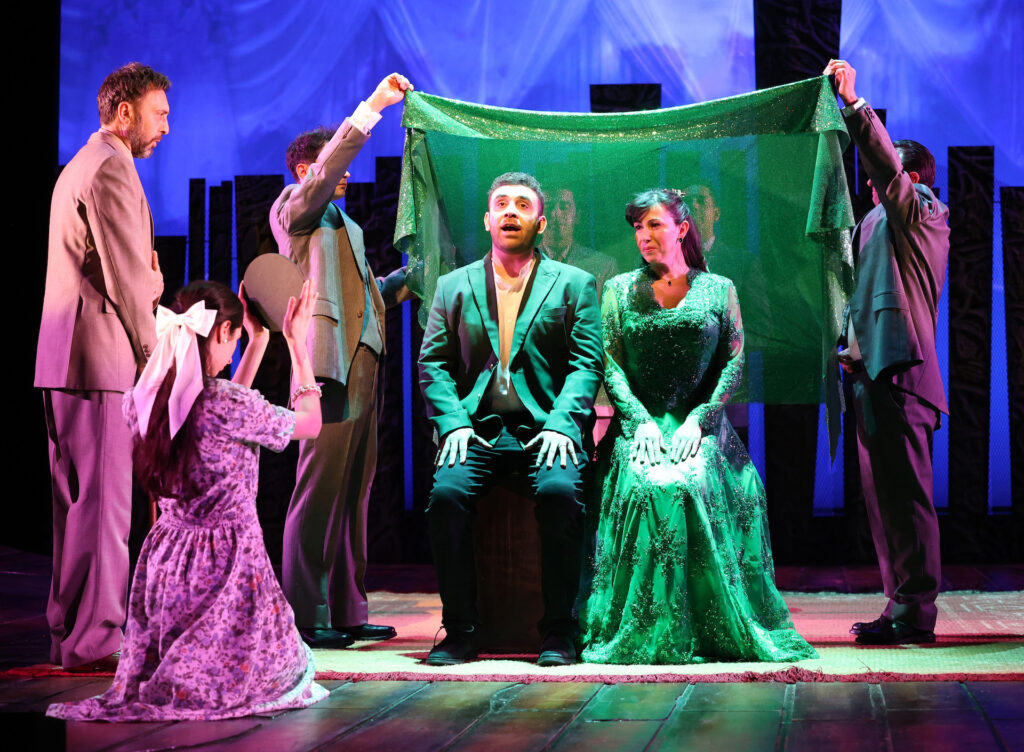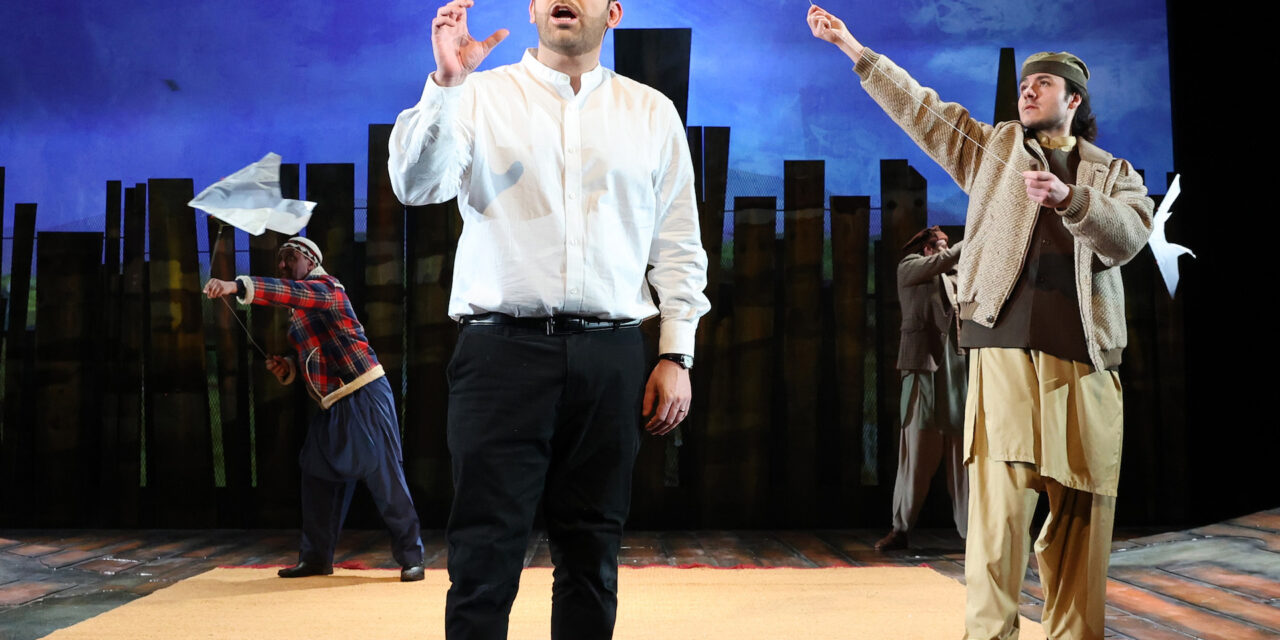
18 – 23 March
Khaled Hosseini’s novel The Kite Runner, first published in 2003, is an ambitious, far-reaching tale that interweaves Afghanistan’s social and political upheavals with the domestic story of a fraught father-son relationship and a childhood friendship fractured by cowardice and betrayal. Amir, the only son of a wealthy widowed father, witnesses the fall of the Afghan monarchy and the Soviet invasion, escapes with his father to Pakistan and on to the USA, and eventually returns to rescue a child from the Taliban. Inevitably, in creating a stage version of a novel of such wide-ranging scope, much of the complexity and depth of the original must be compressed and simplified. Directed by Giles Croft, Matthew Spangler’s adaptation achieves that simplification without losing sight of the spirit and central themes of the original, but there is often a sense that one is being taken on a breathless gallop from one event to the next.
Many of those events are not seen directly, but are narrated by the adult Amir. These passages of narration are frequently interlaced with enacted scenes from Amir’s childhood, requiring the actor playing him to instantly transform from adult to child and back again. A vivid sequence of this kind has Amir describe the day he won a kite fighting competition, triumphantly slicing through his rivals’ kite strings. That moment of success brings rare praise from his rather remote and disapproving Baba, played with cold dignity by Dean Rehman. As Amir, Stuart Vincent performs these shifts from adult storyteller in San Francisco to small boy on the streets of Kabul with energy and skill, but the rapid jumps back and forth in time and place do not always convince and bring with them a disconcerting discontinuity. Amir is by no means an entirely admirable character, and a real strength of Vincent’s portrayal is the fine balance he draws between Amir’s moral failings and his more likeable qualities. One is left just about forgiving him for his childhood sins, in much the same way that he just about forgives himself.
Yazdan Qafouri gives a deeply touching performance as Hassan, the illiterate servant boy who is Amir’s brave and faithful childhood companion, unrivalled in his skill at chasing after falling kites. Hassan’s nemesis is Assef, portrayed with chilling menace by Bhavin Bhatt. His rape of Hassan represents all that is most evil in Afghanistan, and when we last see him he has become a Taliban leader. Amir and his father become refugees, with Amir ruefully reflecting that after a life of considerable success and prestige, his baba is left with nothing but ‘two suitcases and a disappointing son.’
A convincingly Middle-Eastern vibe is created by tabla virtuoso Hanif Khan, with additional music and song supplied by the cast. Barney George’s simple but highly effective set, dominated by a bifurcated kite-shaped screen, allows for rapid changes in location, underlined by images from projection designer William Simpson. The Kite Runner is frequently aurally and visually very beautiful, with Amir’s wedding being an especially attractive scene. There are frequent flashes of humour, and Amir’s move to the USA is depicted with an amusingly clichéd depiction of the groovy Californian lifestyle. At times, perhaps, this production is too quick to shy away from the uglier features of the story, which are often literally screened from sight or simply left to Amir’s narration; a more direct presentation of the less pleasant aspects of the tale would be dramatically more effective. Nevertheless, The Kite Runner offers an engrossing tale, and its hard-won redemptive conclusion is ultimately very satisfying.
★★★☆☆ Mike Whitton, 19 March 2024
Photo credit: Barry Rivett for Hotshot Photography


